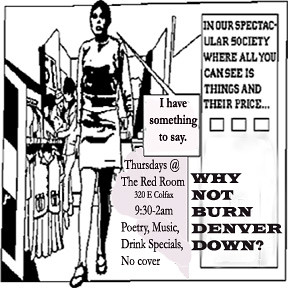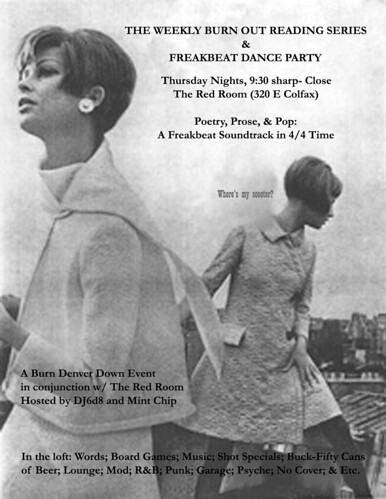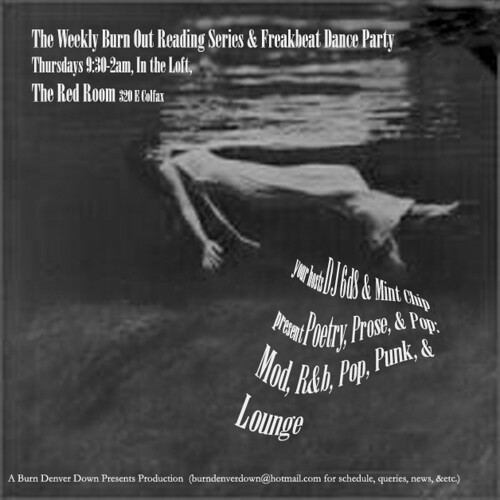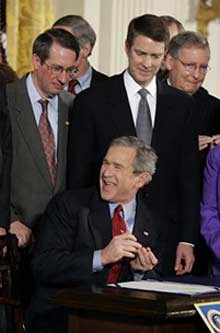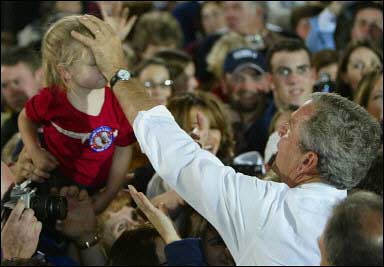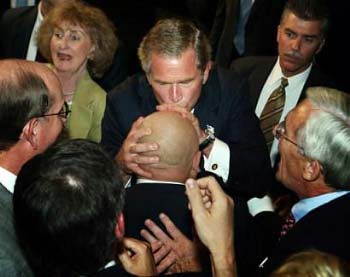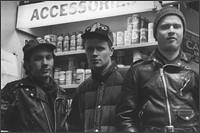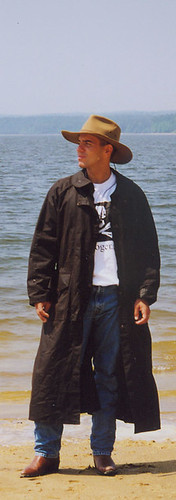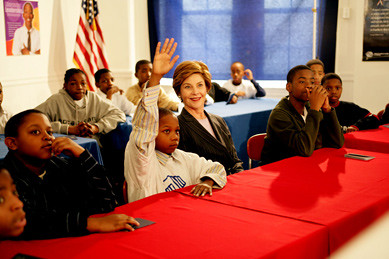(All notes reference Traherne's "Walking"--cited at bottom of post--and Martin Corless-Smith's
Nota. I am working through ideas here and you may or may not find anything useful. I am not sure how much I am invested in these claims, but I like a few of them. I wanted to get into Merleau-Ponty with
Nota, but those books are at home and I am at my office.)
:what Traherne does with meaning/syntax:
I can spend the next week or two on the first stanza. The first stanza is not circumstancial.
Traherne encourages me
To walk [in this case] abroad, not with eyes [only] but [with] thoughts is to see and prize the fields.
I think my paraphrase is useful in many ways: highlights three important ideas: 1)his troubling of eye(sight) and thought(image), 2) his emphasis on
how to walk (abroad), and 3) his formal introduction of value (to prize.)
I like "silent feet" (line 3): verse is frequently composed from silent feet; at times a poet constructs a poem considering syntax alone. Lines are often cut from premade fabric and so are referential: dependence on everyday phrases and clauses, a regular rhythmic accompaniment, a recognizable tone, to portray what is considered behind the lines. However, this may not be a simple critique of imaginative verse written without the urgency or outside the presence of activity;
Traherne's may be an acknowledgement that a poem is, as an object, a silence through which a sound is prized.
Traherne laments a
wrong sense of still. A poem shouldn't sit still. I hear American Modernism in "Walking": a wanderer, poetic project(ion), aspiration (the bees,) the field, entrance to exit, and the playfully serious pessimism in
Spring and All,
Williams' "if anything of moment results" is concerned with the "constant barrier" that a poet (not a reader) erects between the poet and the reader. This barrier might be a book, a page, or a leave (of grass, or weed--a volunteer(?)--) that physically and consciously, (in other words, purposefully though without too much care, hence fortunately) prevents a reader from contact with the author's immediate contact with the world.
Authors can
- write with an intellectual barrier already in place that determines the form and content of the actual, physical barrier (the poetic or prose object) between reader and writer because authors choose to eschew an unstable and common intellect (solitude) in midst of a crowd to cultivate a stable and singular intellect in isolation from the crowd (seclusion);
- write in the moment, more or less aloof from though always a part of the crowd, and consciously mediate the intellectual barrier between reader and writer because authors can prevent oppressive elements (such as a cultivated or habitual indifference as a response to the sublime) from being translated into static moments within their work.
We have to admit at least this barrier and the ethics it involves: should I write a few lines
above Tintern Abbey? Or, should the lines be written
there, at or in Tintern Abbey? Reading the Prelude (its versions) only (re)constructs this problem. How do I say myself as a way to you myself by doing it again in the line for you by myself?
I hear in Traherne's poem these fragments from Whitman:
I am a look--mystic--in a trance--exaltation.
Something wild and untamed--half savage.
Common things--the trickling sap that from the end of the manly
maple.
[&]
I am become the poet of babes and little things.
I descend many steps--I go backward primeval
I retrace steps oceanic--I pass around not "merely my own kind," but
all the objects I see.--
I know the former is overtly sexual, but look past the prurient to the notion that this "prize" is a common thing(ing). With the latter, its concern with babes and little things, recalls Traherne's claim about what children perceive in the penultimate stanza.
What does a child know before learning how to say NO and thereafter seeing only difference through want or desire? What a child knows is what a child needs--the presence of the self-same in moments of attachment to others--we debase this as innocence or dependence. But patience belongs to the fallen, not to the innocent. The past is an aspect of our detritus and always having already been. The present is never accessible after difference sets in.
This is not to say that we cannot walk and talk through it together in useful and possibly necessary attempts at constructing a close-knit and patient community of seers and thinkers.
Writers ask of objects: Where was it written? Where was it thought? Where was it heard? Did I, in fact, hear it this way? Will they (readers) care? Always a courtesy to the past events, never a knowledge of the present moment. That's what we lost--certainty and wonder.
(jump ahead: Corless-Smith writes at the beginning of the poem "Nota": "The authority I give to OR is always as a subset of AND." A rare period in his book. A rare resting place. The conjunction is important as a place to stop: the first line finds the next claim, reasonably: "Any description of that which is becoming is thought inferior to a description of that which is." This explains OR as a subset of AND. And offers another period.
I'll put it in notation: (I am going to die OR I am not going to die.) AND (I am dead Or I am not dead.)
He writes: "Matter though independently real is dependent for meaning on its relation to Spirit."
I might add: Wittgenstein, in Culture and Value, remarks that after culture is nothing but a pile of rubble, Spirit will hover above it--one can only assume he meant unharmed, unchanged, or as Spirit. What matters of Matter, then, is Spirit.
I might add: culture is the gumphis subtilibus holding Spirit to Matter. With each breath exhaled another seam gives out. I am sure we cannot know just how many sutures we began with OR how many are left.)
The pain in seeking for certainty (Whitman's "I pass around not 'merely my own kind' but all the objects I see.") overpowers work, potentially encases authors inside their own concerns, protects them (in bad faith) from the critic and the market and from their peers and themselves.
A movement towards...realism; after all, this is a movement not towards signification, structure, (ugh) representation, but towards consciousness. Consciousness, in this sense, may be self-aware being
illustrating for others itself having been somewhere at sometime. And this illustration is not
with others, but a firm denial of shared value--a desire that subordinates one interpretive exchange for another. Such a defined consciousness stakes a claim only about and for itself primarily so that it can be exchanged for other similarly constructed claims. Traherne's work dismisses this aspect of formalism for a more objectively personal and abstract presence of recognition and recollection in seeing and prizing sight.
What has happened to our ability to confess the limits of signification? We need to coordinate our efforts in an attempt to understand certainty of what we experience(d) as a culture, a community, an individual. Subordinating one form for another allows us to think in terms of what image is worth more than the other. The slip is mechanical and occurs at the level of (in this case) the poetic utterance. What con-forms in line?
Wherever am I going with this?
I am figure-ing the opening lines in Traherne as phenomenological, I think, by working backwards from the walking and talking in the final stanza. "To walk abroad is, not with eyes/ But thoughts, the fields to see and prize." The problem is in how we choose "to see and prize." First "to see" and then "to prize."
The argument against the dead wood or "silent feet" occurs in a dialogue between eyes and thoughts. Hints of Wordsworth. To be properly engaged in a moment, to appropriately recollect it. "To see and prize" is to recollect what has been witnessed or experienced in a way that sets a value upon both the image and the recollection of the image.
What is my ability to thoughtfully reconstruct a physical experience? How can I value a site/sight without fully abstracting it from the concrete order of its original moment? Or what skills do I possess to make that moment mean something more common than a simple conveying of what happened at any given moment?
But this isn't a comfortable recollection in solitude. There is tension in Traherne between writing about walking and walking itself. Look at that heavy and happy word, "meet" (line 6).
Well, duh, it is rhymed with "feet"...what meets in feets?
Easy answer: the seen (what was observed or experienced) favorably meets the prized (possibly, a poem that relates the seen.)
Honest answer: the result of "the fields to see and prize" meet (as in transform) the silent feet which might otherwise be left "like logs of wood."
Let's play; experiment. What if, [(A OR B) AND (A
1 OR B
1)]. If the variables and their primes represent different options for writing a line. For any walk or talk, any thought or moment, the variables change and conform to each other and an unknown difference. So that A= [(A OR B) AND (A
1 OR B
1)]; B= [(A OR B) AND (A
1 OR B
1)], if A and B change for every contemporary moment here and now. A present moment is always a subset of past circumstances. This is a sort of turning my self inside out.
Even the conformist cannot claim conformity because making a choice to align all variables occurs within a process of others making similar choices without the process of knowing what choices are made prior to writing.
I have no idea where this is going. It has its own purpose and stakes its own claims--that the line is self-written and merely copied is a distinct possibility since my ability to say anything meaningful is always sight and language limited. Why not simply cut it all up? Does it mean anything different or does it simply mean differently?
Thinking of Thoreau, of becoming.
The puppet imagery is tough. That is Tough Thomas Traherne...ever haunted by the yapping eyes of a dummy? I saw Anthony Hopkins in
Magic when I was eight. Wasn't frightened by the psycho biz, but the puppet creeped me out for months. Uncanny...Stranger Strange.
I got started on this Traherne poem thought experiment b/c of
Nota. Fabulous reading with Martin and Catherine. Both performed wonderfully; somehow a valuable accompaniment, in spite of the very different work. We all sang together. Nice ending to a good day spent. All the tags in
Nota. I know lyric when I see it, but I am taken by the use of lyric as a tag: tagging.
Specifically the opening stanzas: A few examples (my ampersands):
"But Although The Experience Of Seeing Is Not Typical"
Two feet above the ground I walk
invisible
a storm comes on in yellow light
thick drops
If I must sleep in daylight
and silent through my talk
the books I open follow
me as clouds
[&]
There are also solitary bees
those whose soil is so poor
ant on the cut peony
carried off in folds of
scent from the earth
[&]
The symbolic landscape of the landless
The principal possessions of the dispossessed
I am interested in Traherne's and Corless-Smith's "bees" in conjunction with walking and talking--bees are not silent...
Traherne:
To walk abroad is, not with eyes,/ But thoughts, the fields to see and prize;/
To fly abroad like active bees,/ among the hedges and the trees,/ to cull the dew that lies/ on ev'ry blade/
Corless-Smith:
Two feet above the ground I walk/ invisible
There are also solitary bees/ those whose soil is so poor/ ant on the cut peony/ carried off in folds of/ scent from the earth
In rare cases it is useful to talk
What of the difference between solitude and seclusion? I like Thomas Swann's claim, "I am no free agency." "To my sight--which seems held in loose connection to my self the world is equally a home." What of the dependable (as in a reliable dependency) connection (conjunction?) between the eyes and what they see constructing a self or a home. What of my home and my self? Is this a solitary place where the poet (in this case) hides or is kept? Is Thomas Swann a kept self? Well, the joke aside, this is a valuable question to ask.
Swann does, after all, wonder if his arm is actually his or if any arm could do. In other words, form form form...and certainty. I think Swann might do well to consider Wittgenstein's explorations on certainty. I like the idea that solipsism, though a common oppression, is curable through inquiry that leads the author out of seclusion without eradicating desirable solitude.
btw, I really like
You ask you may you may survive this sight
you won't survive yourself and here you end
another takes you on you must comply
you have no other gravity
overloaded or what! pow
----
now read Thomas Traherne "Walking"
To walk abroad is, not with eyes,
But thoughts, the fields to see and prize;
Else may the silent feet,
Like logs of wood,
Move up and down, and see no good
Nor joy nor glory meet.
Ev'n carts and wheels their place do change,
But cannot see, though very strange
The glory that is by;
Dead puppets may
Move in the bright and glorious day,
Yet not behold the sky.
And are not men than they more blind,
Who having eyes yet never find
The bliss in which they move;
Like statues dead
They up and down are carried
Yet never see nor love.
To walk is by a thought to go;
To move in spirit to and fro;
To mind the good we see;
To taste the sweet;
Observing all the things we meet
How choice and rich they be.
To note the beauty of the day,
And golden fields of corn survey;
Admire each pretty flow'r
With its sweet smell;
To praise their Maker, and to tell
The marks of his great pow'r.
To fly abroad like active bees,
Among the hedges and the trees,
To cull the dew that lies
On ev'ry blade,
From ev'ry blossom; till we lade
Our minds, as they their thighs.
Observe those rich and glorious things,
The rivers, meadows, woods, and springs,
The fructifying sun;
To note from far
The rising of each twinkling star
For us his race to run.
A little child these well perceives,
Who, tumbling in green grass and leaves,
May rich as kings be thought,
But there's a sight
Which perfect manhood may delight,
To which we shall be brought.
While in those pleasant paths we talk,
'Tis that tow'rds which at last we walk;
For we may by degrees
Wisely proceed
Pleasures of love and praise to heed,
From viewing herbs and trees.
...
